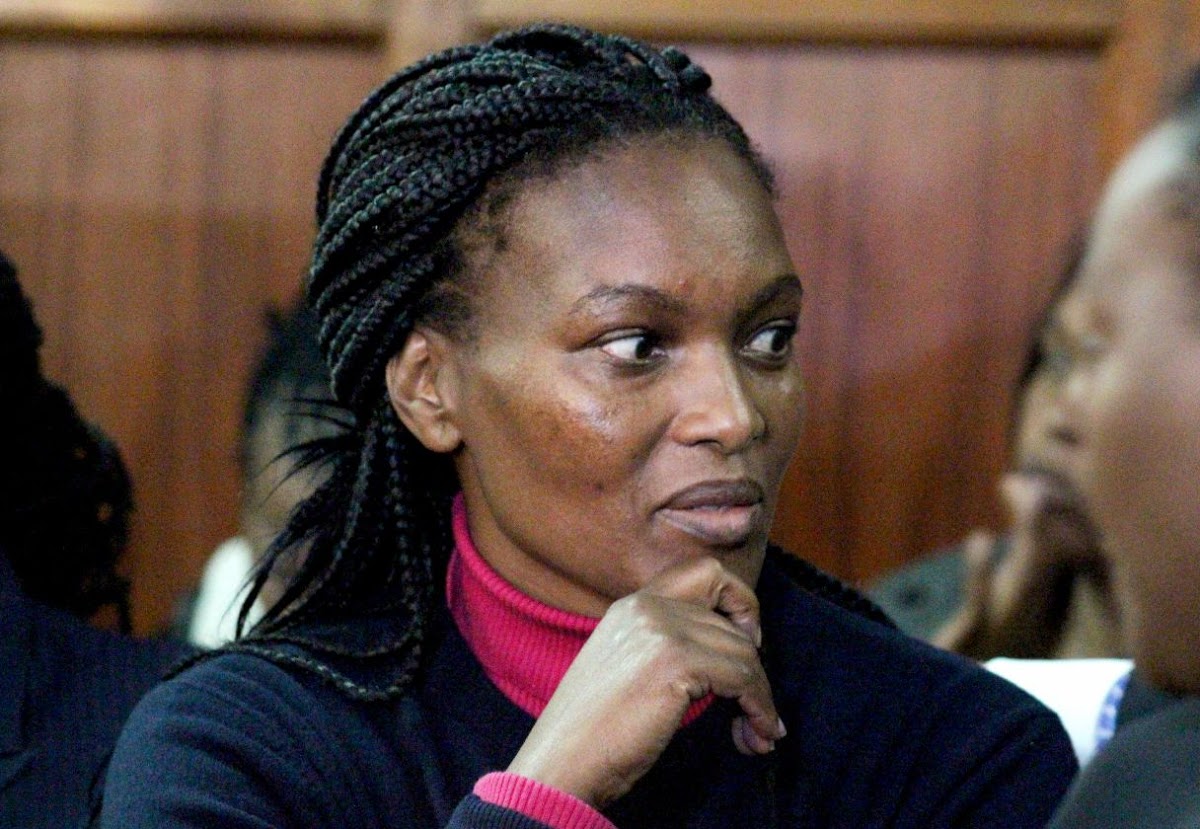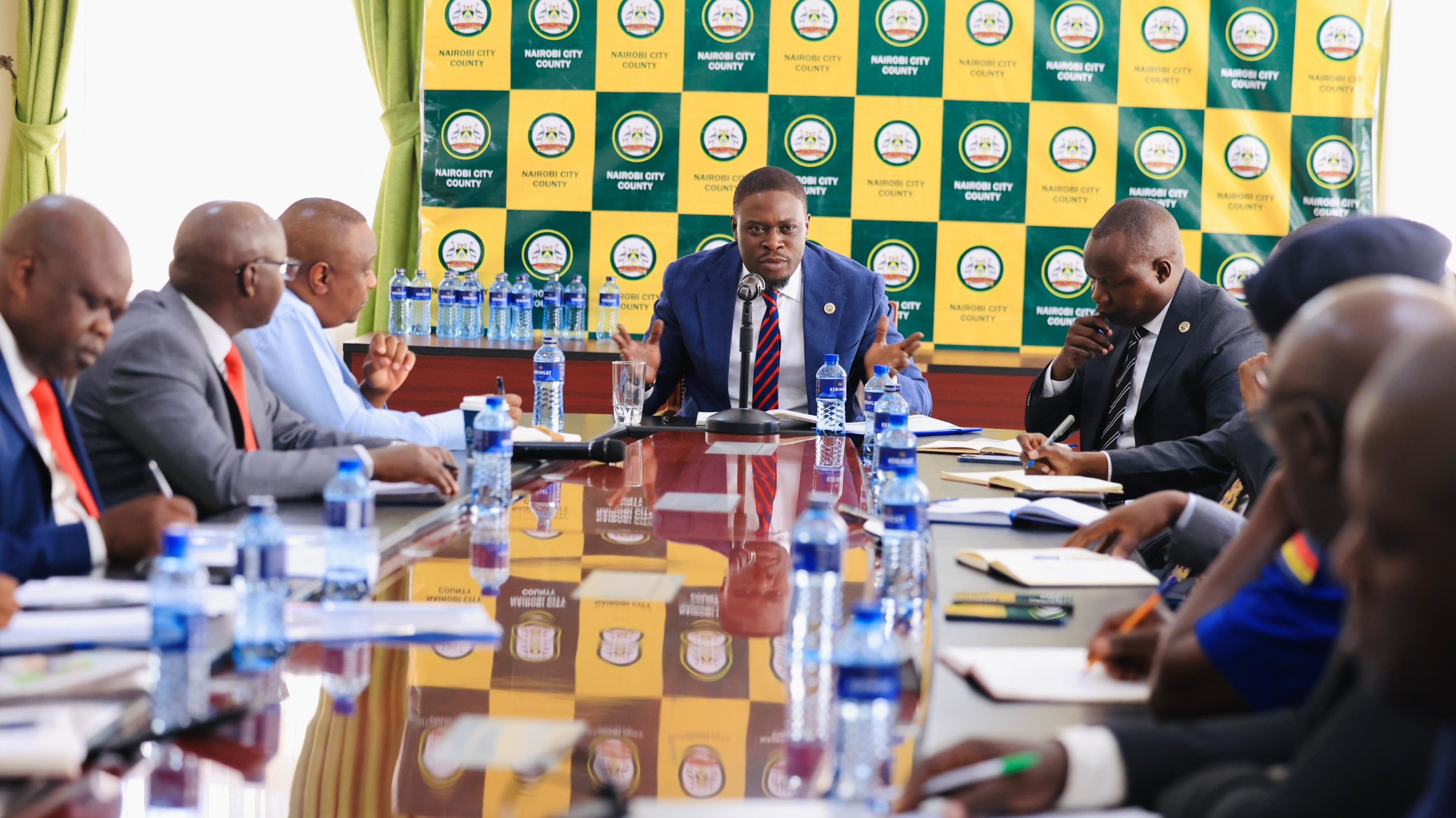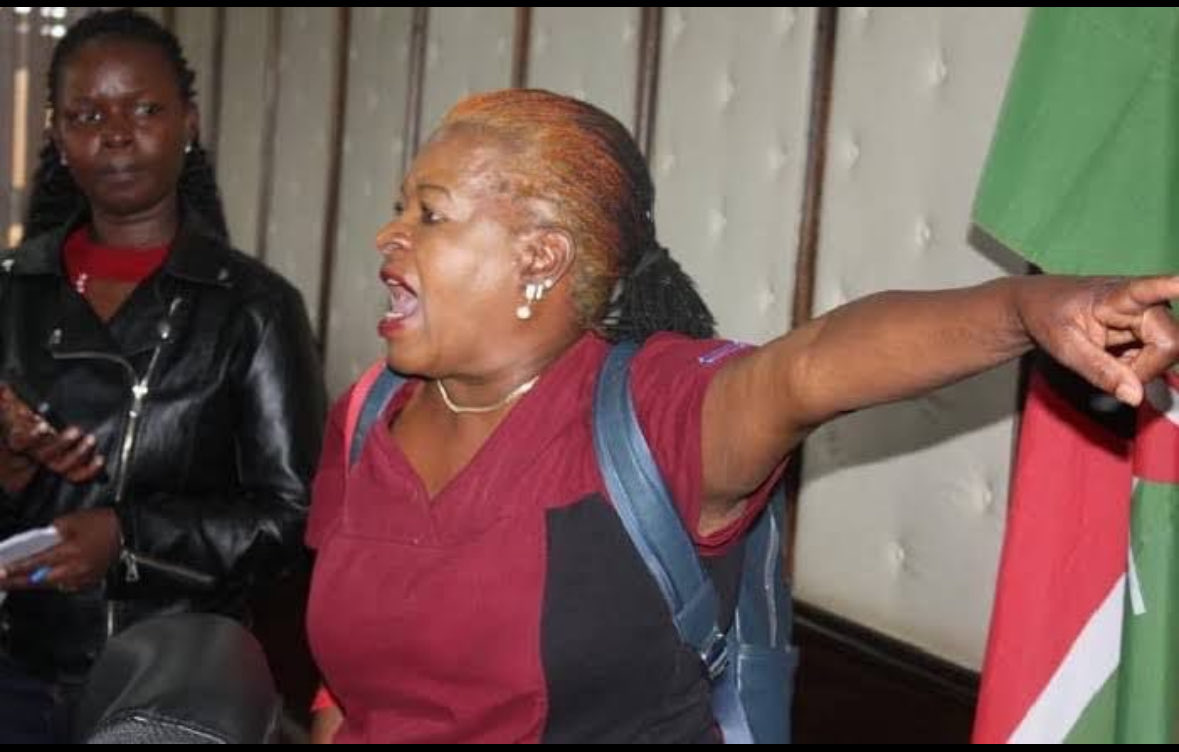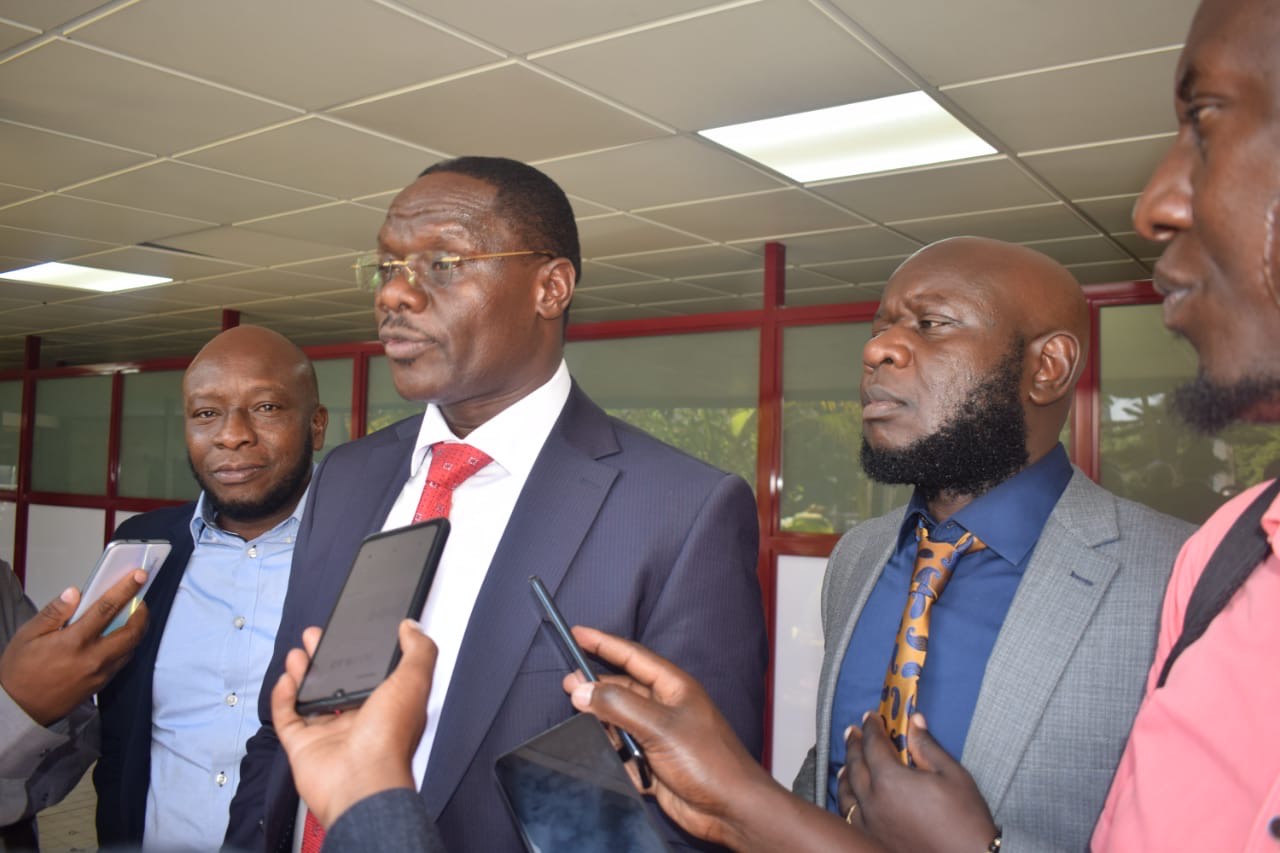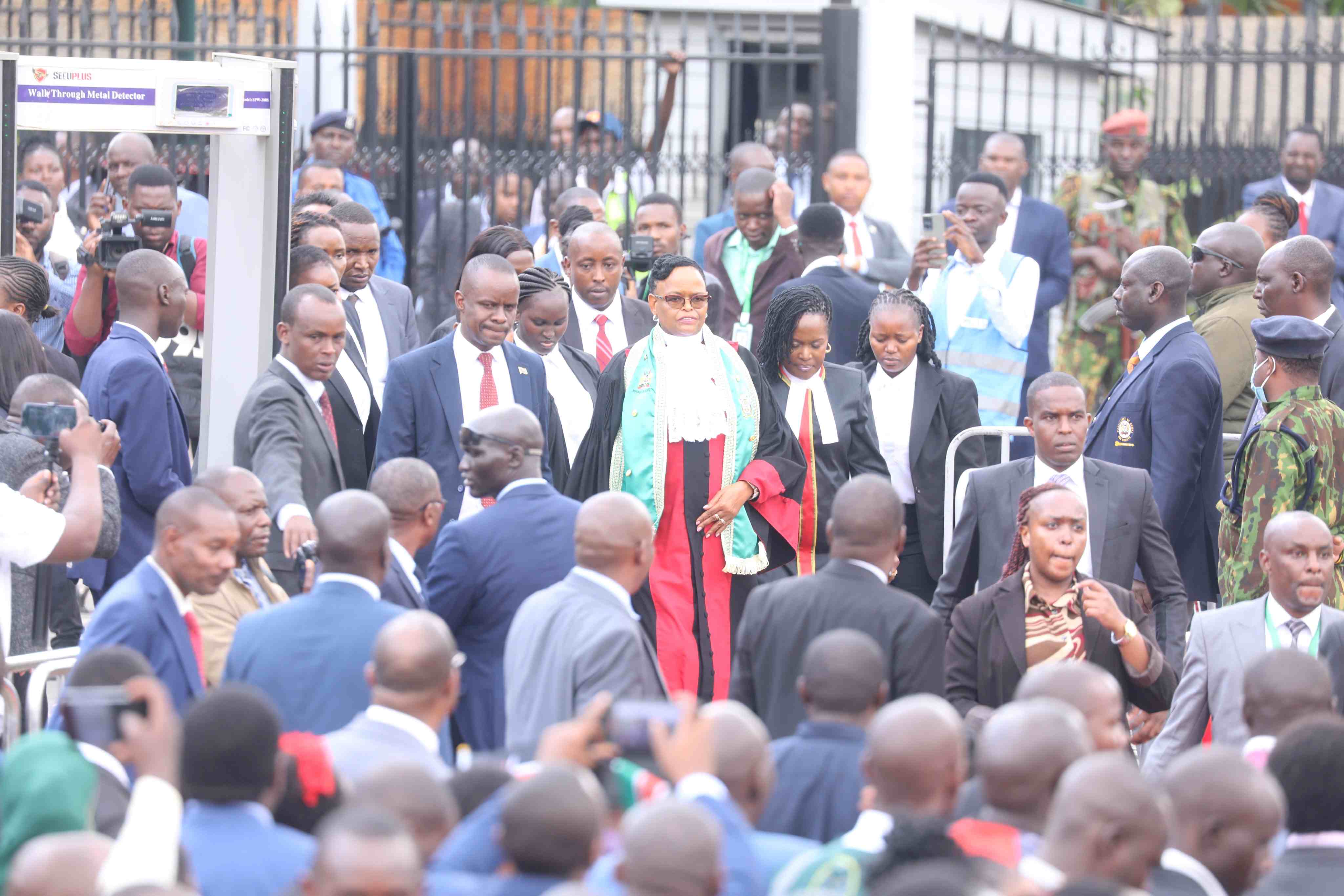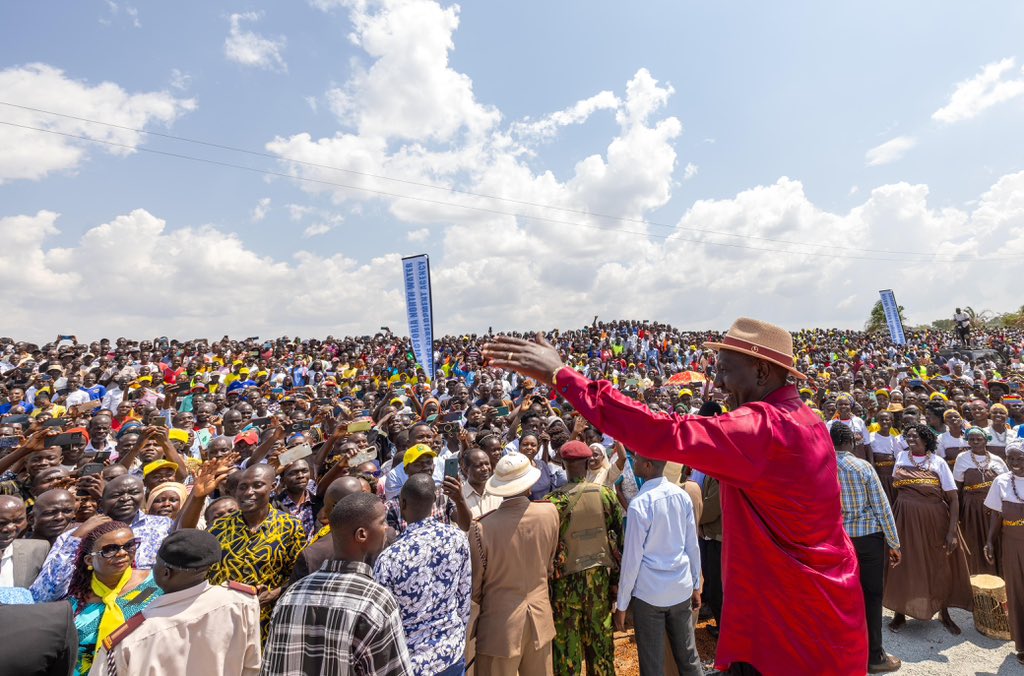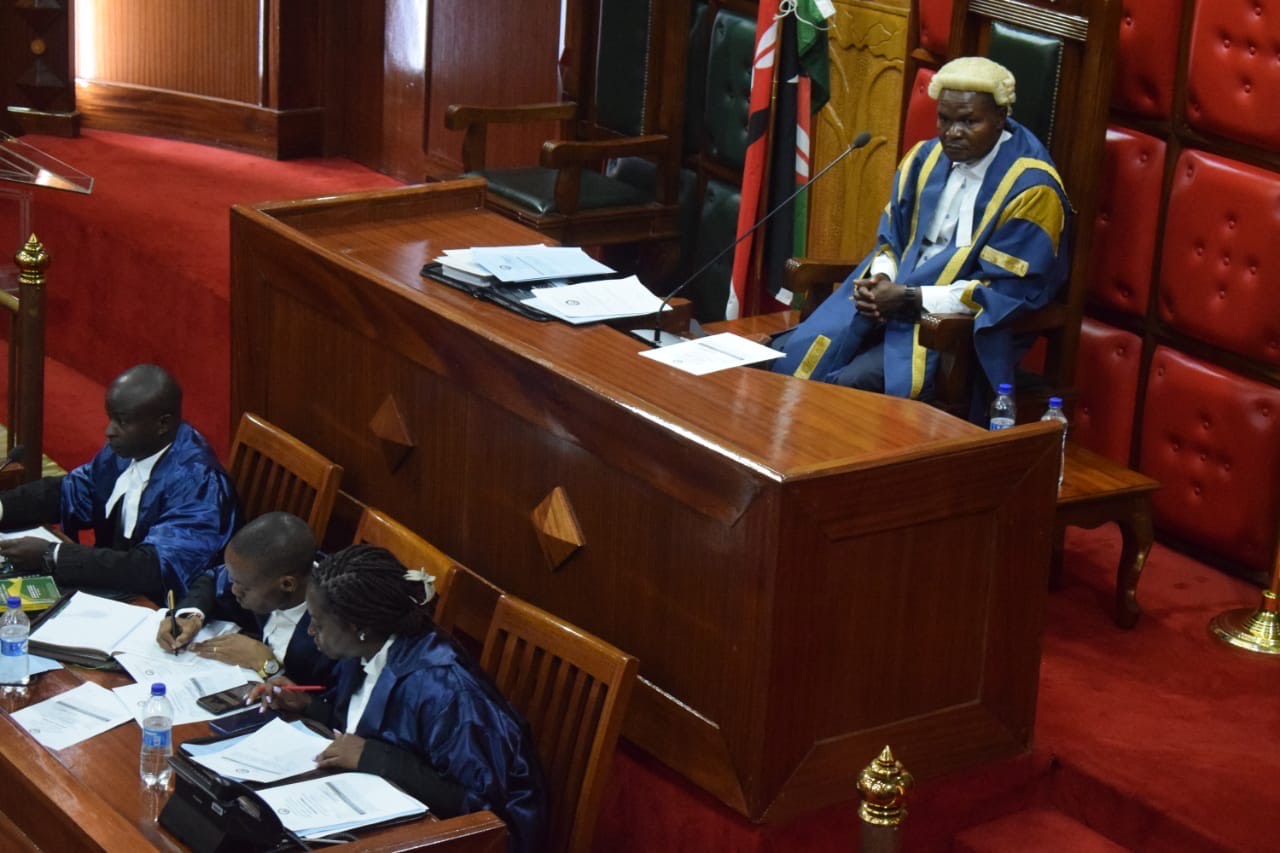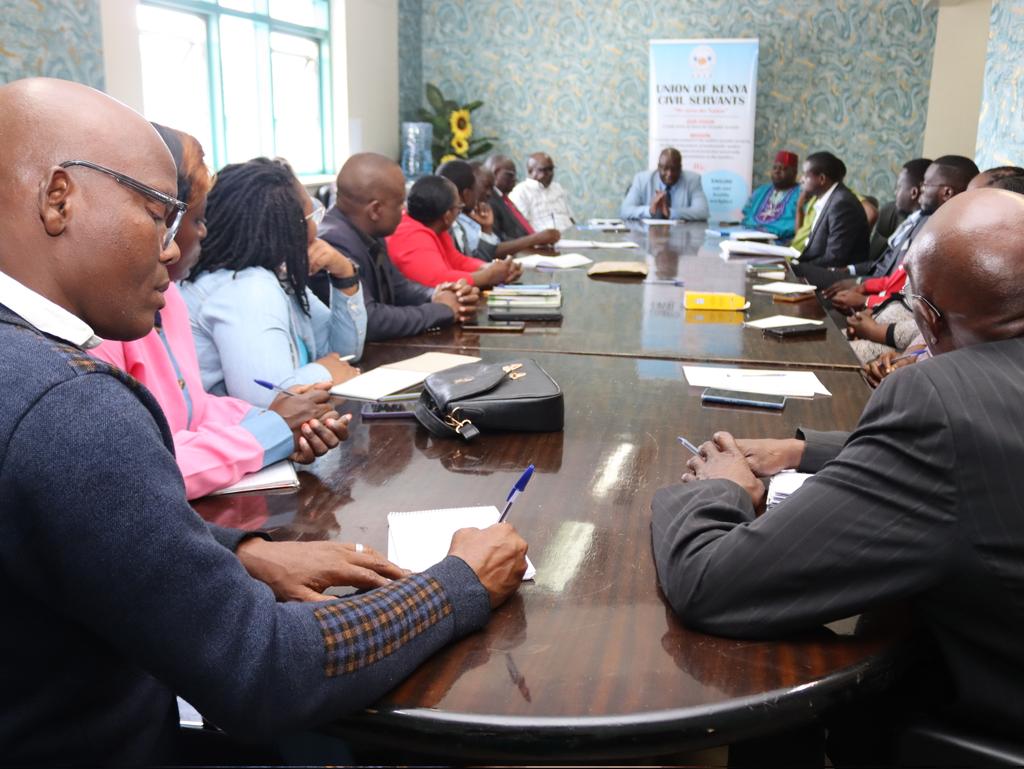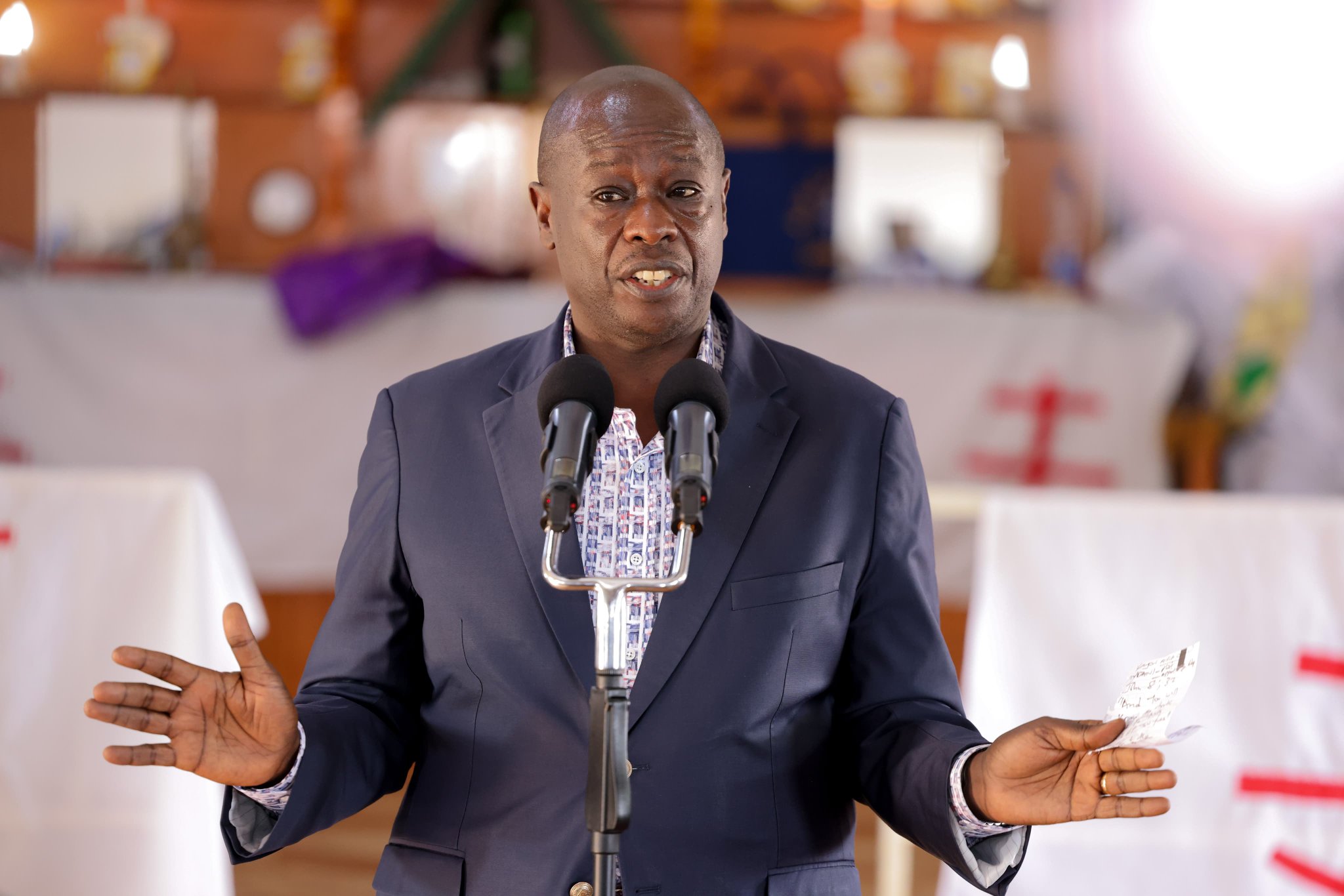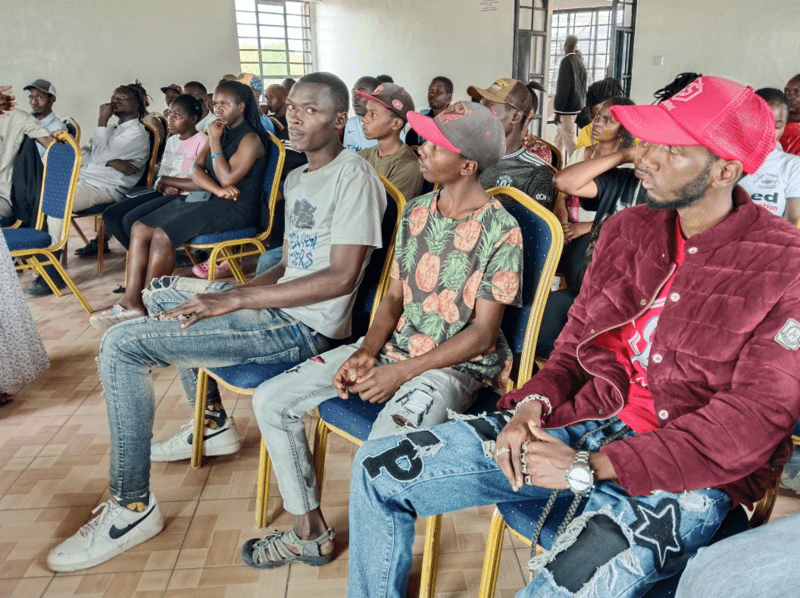Next steps after President Ruto's signing of IEBC Bill
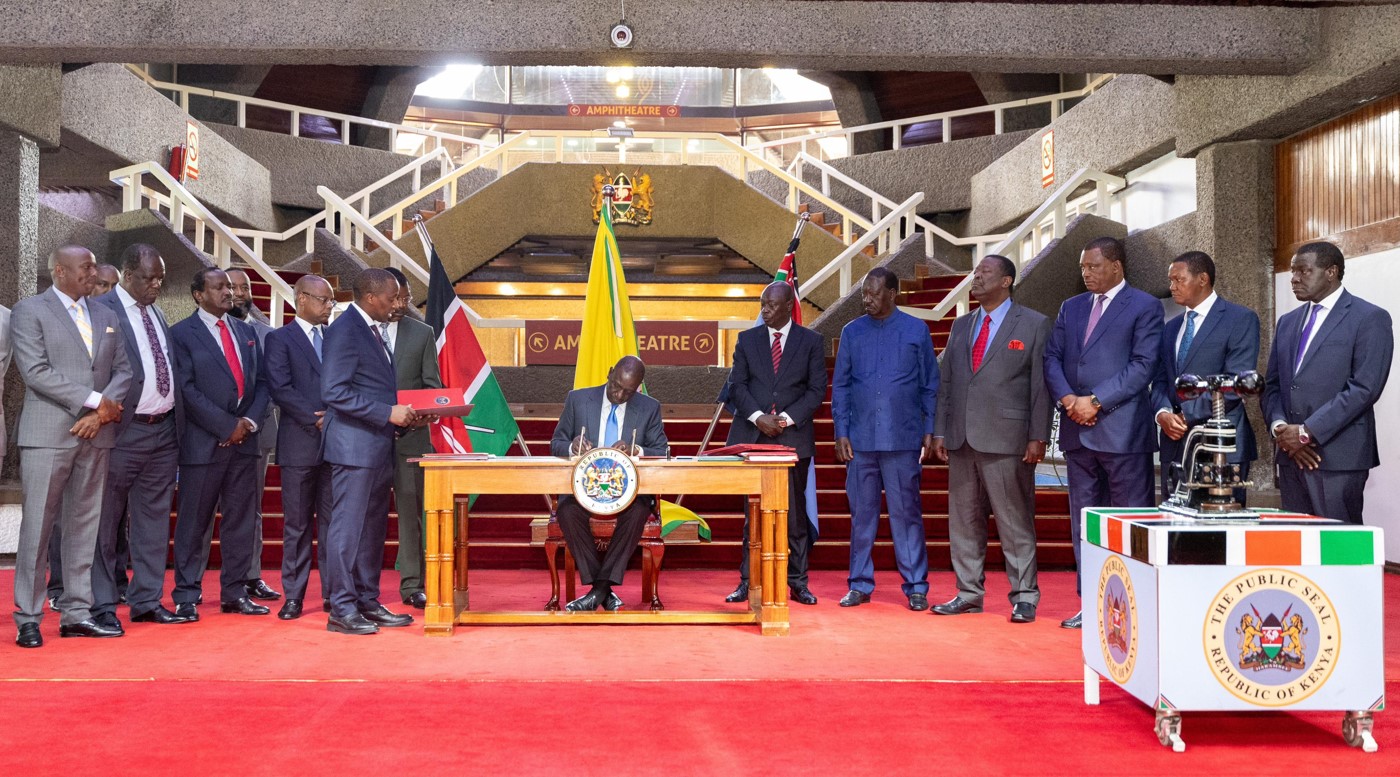
Details of what follows the signing of the bill that established a roadmap for kick-starting the process of the recruitment of their successors at the Independent Electoral and Boundaries Commission.
President William Ruto's signing of the IEBC (Amendment) Bill 2024 has paved the way for the hiring of new commissioners for the agency that was incapacitated by the exit of Chairman Wafula Chebukati and his team.
The bill established a roadmap for kick-starting the process of the recruitment of their successors at the Independent Electoral and Boundaries Commission.
More To Read
- Kenyans back Justice Isaac Lenaola's call for quick reconstitution of IEBC
- Kalonzo: Those delaying reconstitution of IEBC have self-centred interests
- IEBC stares at constitutional crisis as boundaries review deadline overdue
- IEBC selection panel hits yet another snag as fresh legal challenge emerges
It was co-sponsored by Majority Leader Kimani Ichung'wa and Minority Leader Party Opiyo Wandayi, and Speakers Moses Wetang'ula (National Assembly) and Amason Kingi (Senate) led their houses in considering and passing the bill on June 20 and June 11, respectively.
"The bill seeks to give effect to some of the recommendations and views of the public that were submitted to the National Dialogue Committee (NADCO) on Electoral Justice and Related Matters; Outstanding Constitutional Matters; Fidelity to Political Parties/Coalitions and the law on multiparty democracy; Entrenchment of the National Government Constituencies Development Fund; the Senate Oversight Fund and the National Government Affirmative Action Fund and Establishment and Entrenchment of State Offices," Parliament noted in a brief on Tuesday, explaining the process of creating the law.
Selection panel
The IEBC Act of 2011 states that the appointment of the chairperson and members is by a selection panel appointed by the president within 14 days of the declaration of vacancies or at least six months before the current officials' terms lapse.
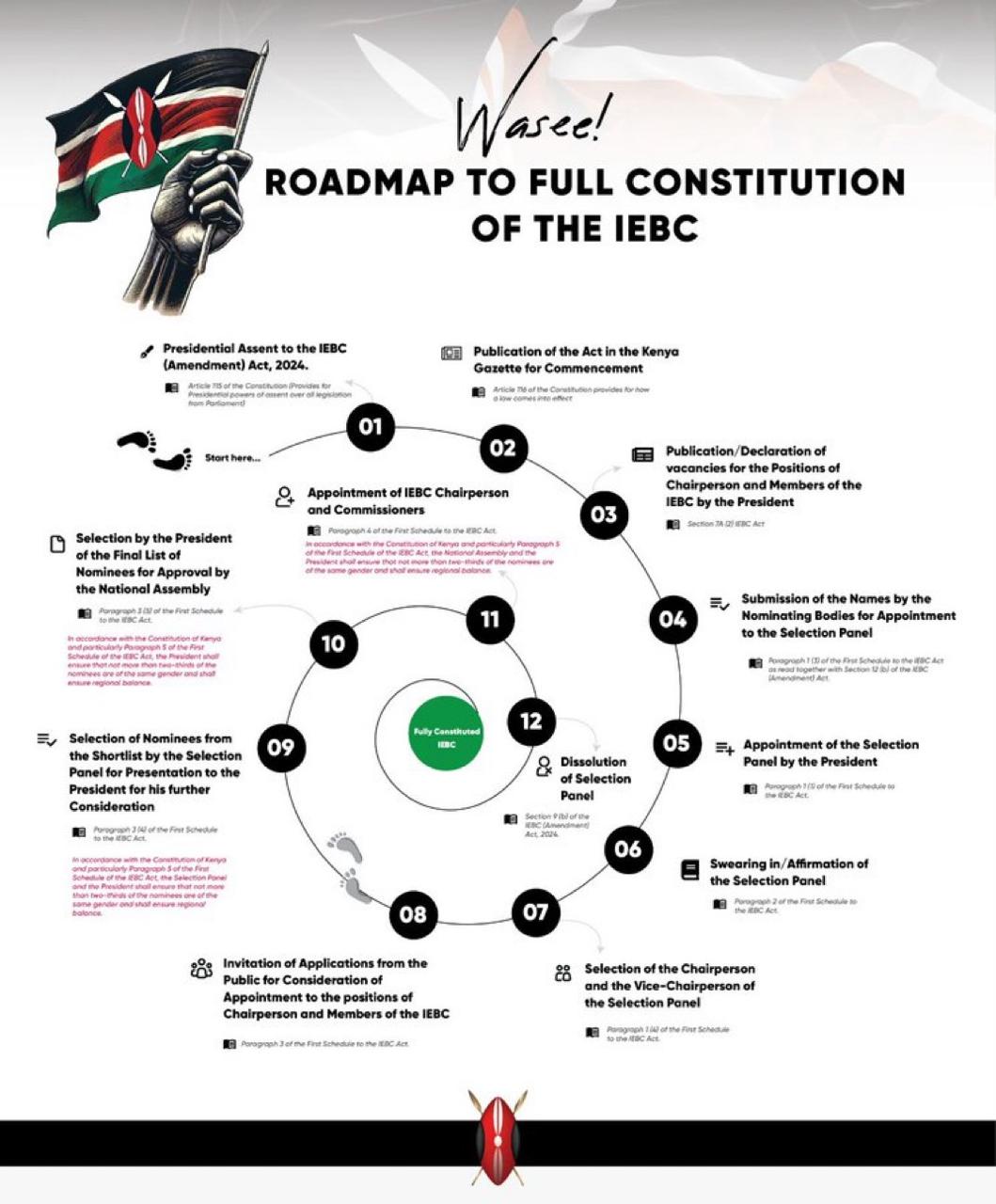
Upon commencement of the provisions of the bill, various nominating bodies shall forward names to the president, through the Parliamentary Service Commission (PSC) within 14 days.
The president is to appoint the selection panel within seven days of receipt of the names.
The panel, which is given 90 days to conclude the recruitment, has to invite applications from qualified individuals, publishing their names and qualifications, consider them, create a shortlist, and conduct interviews.
It will then select two individuals for the chairperson position and nine for the commissioner position and then forward these names to the president, who will nominate one person as chair and six as members.
Assenting to Independent Electoral and Boundaries Commission (IEBC) Bill, KICC, Nairobi. https://t.co/4OSN1lQFZs
— William Samoei Ruto, PhD (@WilliamsRuto) July 9, 2024
The president will then forward the list of nominees to the National Assembly for approval as per the Parliamentary Approval Act.
If parliament approves the president's list, he will appoint the chairperson and members within seven days, ensuring compliance with the two-thirds gender rule and regional balance.
Under the new Amendment Act of 2024, the selection panel will dissolve after forwarding the nominees' names to the President.
However, parliament may resolve to extend the selection panel's tenure if needed. In case of a vacancy in the chairperson position, a new appointment will be made rather than having the vice-chair or any member act as chair.
In February 2023, President Ruto appointed a seven-member selection panel via a Gazette notice and it began its work, advertising vacancies and receiving applications for the positions of chairperson and commissioners of IEBC.
However, the process was stopped pending the bipartisan National Dialogue Committee (NADCO) talks between the Kenya Kwanza government and the opposition's Azimio la Umoja One Kenya Coalition. This dialogue proposed expanding the selection panel.
Lawmakers also agreed to do away with the panel to ensure that a fresh one accommodated changes in the IEBC Amendment Bill of 2024, which increased the panel's size from seven to nine members.
Following the signing of the law on Tuesday, Ruto will appoint the nine members of the selection panel. Previously appointed members may be selected again should they indicate interest.
We welcome every stakeholder to work with us in addressing the existential challenges and threats facing Kenya. Through broad-based political mechanism, we can rally the country forward.
— William Samoei Ruto, PhD (@WilliamsRuto) July 9, 2024
At KICC, Nairobi, assented to the Independent Electoral and Boundaries Commission (IEBC)… pic.twitter.com/spYOpQvsyV
Key changes
The bill amended the First Schedule of the Act to increase the number of members of the selection panel from seven to nine to accommodate a wide spectrum of stakeholders and interest groups.
Clause 9 required the PSC to provide a budget for the selection panel's expenses.
The bill also amended section 6 of the Act to require a person to possess proven knowledge and at least 10 years' experience to be eligible for appointment as a member of the IEBC.
"Additionally, the bill amends the section to include experience in accounting or information and communication technology as additional professional qualifications for appointment as a member of the commission."
Further, it amended section 10 of the Act to enhance the term of the secretary to the commission from three to four years, renewable once. According to Parliament, this change ensures continuity in the operations of the commission.
The bill further saved the unexpired term of the current holder of the position and sought to replace the current Fifth Schedule of the Act on the Delimitation of Boundaries with a new and updated Schedule.
It also inserted a new section 24B into the Act as a substantive provision on the delimitation of boundaries. The new section requires the commission to involve both houses of Parliament in the review of electoral boundaries.
President Ruto noted on Tuesday that the signing of the law marked a significant step in the actualisation of one of the recommendations of the NADCO report.
"The signing of this bill paves the way for the establishment of the selection panel for appointing IEBC commissioners. The IEBC remains a cornerstone of our democracy, responsible for overseeing regular elections at various levels and, overall, ensuring that our electoral cycle is managed transparently and administered in an impartial, neutral, efficient, accurate and accountable manner," he explained.
The president added that the new commissioners should uphold the IEBC mandate of ensuring elections are managed transparently and administered in an impartial, efficient, neutral, accurate, and accountable manner.
"I concur with leaders who have said there must be professionalism and integrity as part of the cardinal principles of the men and women who will be charged with overseeing our elections," he said.
Top Stories Today








